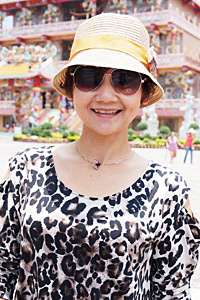The Association of Southeast Asian Nations (Asean) is celebrating 50 years of existence in 2017, with the Philippines holding the chairmanship of the 10-member bloc. The golden anniversary presents a golden opportunity for Asean leaders to show how important regionalism can be at a time when people all over the world are questioning the value of free trade and globalisation.
Philippine President Rodrigo Duterte on Jan 15 highlighted the six priorities his country would pursue during its one-year Asean chairmanship: placing people at the core, working for regional peace and stability, pursuing maritime security and cooperation, advancing inclusive, innovation-led growth; strengthening Asean resiliency, and promoting Asean as a model of regionalism and a global player.
The Philippines was one of the five founding members of Asean in 1967. Together with the other nine members -- Brunei, Cambodia, Indonesia, Laos, Malaysia, Myanmar, Singapore, Thailand and Vietnam -- it is part of a fast-growing market of 630 million people.
Mr Duterte also used his Jan 15 speech in Davao City to call on Asean's dialogue partners -- including China and the United States -- "to be unwavering in your support for Asean's continued development and for its important role in the region's security, stability and growth".
Asean over five decades has achieved significant progress in terms of eliminating taxes to promote free trade, although non-tariff barriers and bureaucratic shortcomings still exist. Thailand has seen its trade and investment with Asean grow substantially in recent years, even as economies of other key trading partners such as the US, Europe and Japan remained in doldrums.
However, analysts and executives say Asean has yet to achieve its full potential, partly because each member is still pursuing its own agenda. For instance, Thailand and Indonesia aim to be among the world's top automobile producers instead of promoting Asean as a manufacturing centre for automobiles as it should be.
Promoting a regional supply chain would allow more advanced economies such as Thailand to focus on research and development while companies could easily source cheap labour and materials from the emerging CLMV (Cambodia, Laos, Myanmar and Vietnam) countries. Indonesia, meanwhile, could be a regional production centre for automotive parts, thanks to its vast availability of labour with competitive wages, says Asst Prof Aat Pisanwanich, director of the centre for International Trade Studies at the University of the Thai Chamber of Commerce.
Asean as a brand is an idea that has yet to really take off, even in areas with strong supply chains such as garments and food, he added.
Inequality is another big problem Asean leaders need to address, adds Pornsil Patchrintanakul, an adviser to the Chamber, who believes trade liberalisation to date has been satisfactory.
"I would like to see more unified work by authorities in all three key pillars -- security, socio-cultural, and economic integration -- along with closer participation by the private sector," he said.
Sometimes, he observed, trade authorities reach agreements with foreign counterparts without considering the concerns of security officials at home, if they consult them at all. Also, economic ministers focus only on economic gains without adequately addressing income inequality, he added.
Certainly, Asean has potential for further integration, but with mutual benefits to be shared better. The momentum in this part of the world contrasts with what is happening in Europe, where free trade and other features of regionalism are under siege.
Last Tuesday, UK Prime Minister Theresa May firmly set out the terms for a "hard Brexit", even though analysts say Britain's close trading relationship with the European Union has served the country well for more than 40 years. In the US, President Donald Trump has raised fears that the world's largest economy will retreat into protectionism and isolationism.
It was left to Chinese President Xi Jinping to take up the cause of globalisation, telling the World Economic Forum in Davos that there were no winners in a trade war. All of this has left us wondering what will happen next in this globalised world.
My final observation deals with another remark that Mr Duterte made, when he called on Asean member nations to show an "abiding respect for the rule of law". So, what should we expect to see in his own country from now on?
Since Mr Duterte's inauguration in July 2016, at least 6,000 people have been killed in his anti-drug campaign, more than half of them by suspected vigilantes. Clearly, there is still work to be done on the "rule of law" front.
